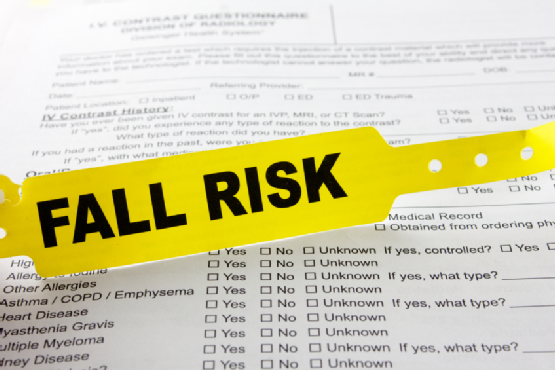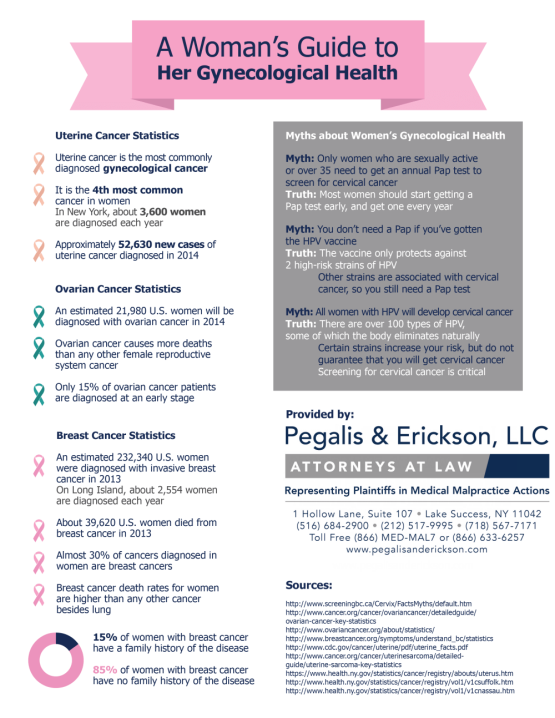-
A Look at the Risk of Falls in the Hospital
If you or a loved one is in the hospital, you may think that your primary concern is the medical condition itself. In fact, your loved one could be at risk of suffering further medical injuries due to falls. Falls can cause debilitating injuries that may involve permanent complications. If your loved one has suffered a fall as an inpatient, you can explore your legal rights and options by speaking with a medical malpractice attorney.

Identifying At-Risk Populations
Some people may be at a higher risk of suffering from a fall while hospitalized. This can be due to reduced mobility, poor reaction time, and impaired eyesight that renders people particularly vulnerable to suffering a fall. Individuals who are on certain medications, such as narcotic pain relievers, are also susceptible to falling. Patients who have undergone certain surgeries, such as joint replacement surgery, have reduced mobility. These patients and any others who require an assistive device for walking are at an increased risk of falls, as are any patients with muscle weakness.Understanding Hospital Negligence
A medical malpractice attorney can review the case to determine who might be held liable for injuries sustained in a fall during hospitalization. For example, a physician might be held liable if he or she failed to order the use of side rails on the hospital bed, despite the patient being at risk of a fall. The nursing staff may be held liable for failing to raise the rails, despite written notes indicating their use. The hospital itself may also be named as a defendant in a medical malpractice lawsuit.If you or a loved one has suffered medical injuries as an inpatient, you do have legal recourse available to you. Contact Pegalis & Erickson, a medical malpractice law firm in Long Island, at (516) 684-2900 for more information. Our medical malpractice lawyers handle cases involving hospital liability, birth injuries, surgical errors, cancer misdiagnosis, and others.
-
A Woman’s Guide to Her Gynecological Health [INFOGRAPHIC]
Looking after your health is important for living a long and happy life, which is why it’s essential to take good care of yourself no matter how old you are. Women have unique medical needs, and should not ignore their gynecological health even if everything seems to be normal. Your doctor should give you a Pap test on a routine basis to check for signs of cervical cancer and any other abnormalities. A gynecologist can also screen you for ovarian cancer, uterine cancer, and breast cancer, which all have the potential to be fatal. If you have sustained medical injuries or you suspect medical malpractice in relation to your gynecological health, you need a Long Island medical malpractice attorney to represent your rights. Explore this infographic to learn more about gynecological health, and to learn the truth about common myths surrounding women’s health. Please share with your friends and family.

-
OR Errors: What Are the Risks of Anesthesia Mistakes?
Anesthesiologists play a key role in ensuring patient safety during a surgery or other procedure that requires anesthesia. Unfortunately, it’s far too easy to make a mistake with anesthesia, which can lead to serious medical injuries. For example, an anesthesiologist might fail to properly intubate a patient, fail to properly monitor the patient, or commit a life-threatening dosage error. Medical malpractice lawyers can help victims of anesthesia mistakes obtain compensation for their losses.

Brain Damage
In the event that a patient does not receive sufficient amounts of oxygen while under anesthesia, he or she can suffer from brain damage. The extent of the brain damage depends upon the length of time that the brain was deprived of oxygen. Sometimes, it can be fatal. When patients survive this type of medical injury, they can experience significant cognitive, physical, behavioral, and perceptual deficits. Patients may have trouble processing information, speaking, and concentrating on tasks, to name only a few potential complications.Anesthesia Awareness
Just as administering too high of a dose of anesthesia can lead to dire consequences, administering too little can lead to a complication known as anesthesia awareness. Individuals who suffer from anesthesia awareness are conscious during the surgery and they may even feel the excruciating pain from the procedure. However, because physicians administer muscle relaxants prior to surgeries, patients are unable to move, speak, or otherwise alert the surgery team. Some individuals who suffer from anesthesia awareness only have vague memories of the event afterward, while others clearly remember it. Anesthesia awareness can lead to post-traumatic stress disorder (PTSD).The medical malpractice lawyers of Pegalis & Erickson have a long, successful track record of representing the rights of medical malpractice victims in court. If you or a family member has suffered from medical injuries as a result of anesthesia mistakes, consider scheduling a consultation at our Long Island law firm. Medical malpractice victims from across the country are invited to call us at (516) 684-2900.
-
How to Protect Yourself Against Medical Mistakes

Doctors are often held in such high regard that they may be considered incapable of making serious errors. Unfortunately, medical malpractice is all too common and it costs countless lives each year. You can protect yourself by becoming an active participant in your own healthcare. Bring an updated list of all of your allergies, medications, supplements, and medical conditions to each doctor’s appointment. Be sure your pharmacist maintains updated records, as well. Additionally, never hesitate to question your physician if you cannot read his or her writing on a prescription. If you can’t read the name of the medication or the dosage, there’s a possibility your pharmacist will read it incorrectly, too.
Patient safety advocates strongly advise patients to speak up when they have a question or a concern. When picking up medications from your pharmacist, make sure you understand the dosage schedule. For example, ask if taking a pill every six hours means that you should take one three times a day. Likewise, question your physician about diagnostic tests and any medical procedures you plan to have.
For more than four decades, the medical malpractice team at Pegalis & Erickson has served as powerful advocates for patients and their families. You can reach out to our medical malpractice law firm in Long Island by calling (516) 684-2900.
-
Hall of Fame
We were just inducted into the Hall of Fame by Verdict Search for largest verdicts and settlements! This news story explains that LI #breastcancer case. https://www.youtube.com/watch?v=dCbV0DjxOK4&feature=youtu.be
Recent Posts
Popular Posts
categories
- Uncategorized
- Infographic
- Patient Safety
- Patient Health
- Stillbirth
- Birth Injuries
- Medical Malpractice
- Medical Negligence
- Event
- Erb's Palsy
- Injury
- ER
- Video
- Cancer Misdiagnosis
- Medication Errors
- Cerebral Palsy
- Medical Negligence Lawyer
- Anesthesia Injuries
- Brachial Plexus
- Prostate Cancer
- About Us
- Men's Health
- Skin Cancer
- Breast Cancer
- Misdiagnosis
